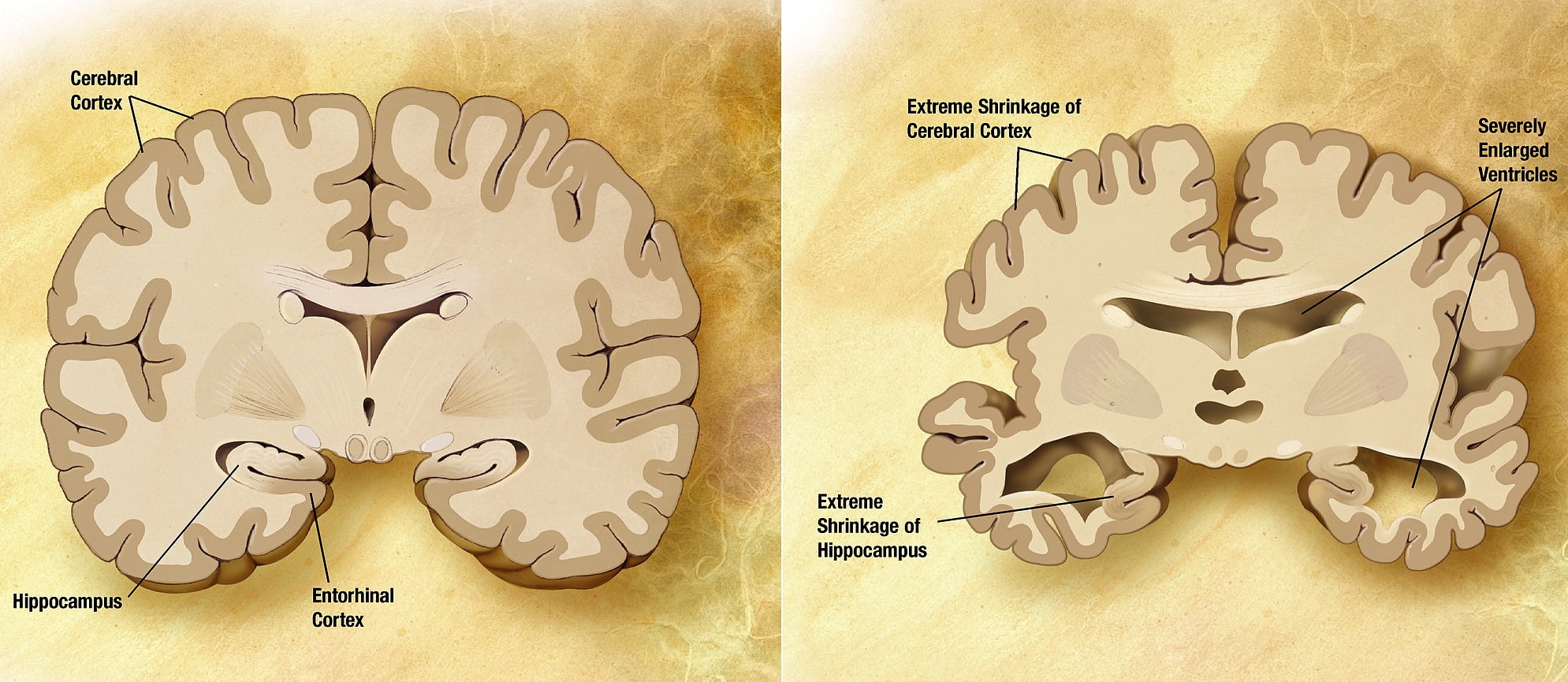November was proclaimed National Alzheimer’s Disease Awareness Month, in recognition of the five million Americans stricken with the devastating terminal illness, now the sixth leading cause of death in the United States. A new analysis suggests that up to half of these millions of cases may have been preventable through lifestyle changes.
We’ve known for almost 20 years that compared to long-time vegetarians, those eating meat (including poultry and fish) appear to have three times the risk of developing dementia. Since studies show “even moderately elevated cholesterol increased dementia risk,” the cognitive impairment more often seen in those eating meat may be due to atherosclerotic plaque building in the brain’s blood vessels, which can cause micro-infarctions or “ministrokes” that can kill off little parts of the brain the way clogged coronary arteries can kill off parts of the heart during a heart attack. A new autopsy study found that those with cholesterol levels over 224 had up to 25 times the odds of having Alzheimer’s pathology (neuritic plaques) in their brains compared to those with cholesterol under 224.
New evidence presented in a series of NutritionFacts.org videos this week suggests that this may be only part of the puzzle. Maybe it’s not just what vegetarians don’t eat, but what they do; the phytonutrients found in plant-based diets have been shown to have a wide range of beneficial effects.
Last Thursday’s video-of-the-day Amyloid and Apple Juice featured new research suggesting there are components in apples and ginger root that may protect human nerve cells (in a test-tube at least) from the neurotoxic Alzheimer’s plaque protein amyloid Beta. It’s one thing to show benefits in a petri dish, though; it’s quite another to show benefit in a human population. That came in Friday’s video-of-the-day The Nutrition Facts Missing from the Label, in which I profile the class of phytonutrients thought to be responsible for cutting Alzheimer’s risk more than 75%. Yesterday’s video-of-the-day, Best Fruit Juice, ranked ten common fruit juices for these phenolic phytonutrients (with surprising results!) and today’s video Constructing a Cognitive Portfolio suggests that different fruits and vegetables support different cognitive domains of the brain, so both quantity and variety of plant foods may be important for the prevention of dementia.
What if you or a loved one already has Alzheimer’s? Tomorrow, in Alzheimer’s and Apple Juice I’ll feature a pilot study suggesting apple juice can affect the cognitive performance, day-to-day functioning, mood, and behavior of Alzheimer’s patients. Thursday in Is Pomegranate Juice That Wonderful? I’ll show how food companies (such as POM Wonderful) invoke the First Amendment to defend false and unsubstantiated health claims.
I think this week does a good job highlighting the three criteria I use to choose among the thousands of articles I sift through annually to create the hundreds of videos I post every year: interesting, groundbreaking, practical. If you find NutritionFacts.org useful, please help me spread the word by sharing this resource with others.
For my previous videos on cognition see:
-Michael Greger, M.D.
